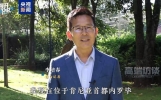一、use作为动词时为什么要加to?
use后面加to do,used to do这个短语翻译为“过去常常做某事”,例如:I used to play ball.过去我常常踢球。相关短语还有:be used to do的意思是被用来做某事;be used to doing的意思是习惯于做某事。
1、used to do曾经/过去常常做某事,如:
He used to live in the country.他曾经住在农村。
2、be used doing习惯于做某事,这里的to 是介词,后面不跟动词原形,跟ing形式,如:
He is used to living in the country now.他现在习惯了住在农村。
二、use to do和use doing的区别?
①
used to do这个短语翻译为“过去常常做某事”,例如:I used to play ball.过去我常常踢球。use doing是错误短语,没有use doing这个用法。
(1)used to do sth."过去常常做某事"。to后加动词原形,否定句为didn't use to或used not to?
eg:I used to take a walk after supper every night.(我过去常常在每天晚上饭后去散步)
(2)be used to do sth."被用来做某事"to后加动词原形eg:Wood is used to make paper.(木材被用来造纸)
(3)be used to doing sth"习惯做某事",to是介词,后加名词,动名词或代词eg:He is used to getting up early.(他习惯早起)
②
used to do sth和 used to doing sth 的区别:1、used to do sth. (一般过去时)表达”过去常常做的事情," 言下之意是现在不常做了。
2、 be used to doing sth. (一般现在时)表达“现在对做某事已经习惯了
③
一个是不定式,一个是ing形式
④
一个是过去式,另一个是进行时
三、介词to的固定短语?
be / get / become used to习惯于
be given to 喜欢;癖好
be related to 与…有关系
be addicted to 沉溺于;对…上瘾
be opposed to 反对
devote oneself to献身于;专心于
be devoted to致力于;忠诚于
be admitted to 被…录取;准进入
be reduced to沦为
四、used to 和in the past区别?
used to 和in the past没有区别
急斜煤层采煤机。适用于倾角大于45°的煤层。急斜煤层由于条件很恶劣,采下的煤块会高速向下滚飞而砸伤人员;冒落的顶板会向下滚滑使采空区充填不足而造成顶板事故;采煤机与底板之间的法向压力太小,同时采煤机不能以工作面输送机中部槽作行走导向而使采煤机运行不易保持稳定
我来回答一下,希望能够帮到你。
前者used to 是个动词短语,在句中常常作谓语,表示以前经常干某事,现在不再干了;而后者in the past是个介词短语,在句中常常作时间状语,不能作谓语动词,中文意思是“在过去”。如:
He used to chat on line.或者说He chatted on line in the past.两者之间可以相互替换。
































